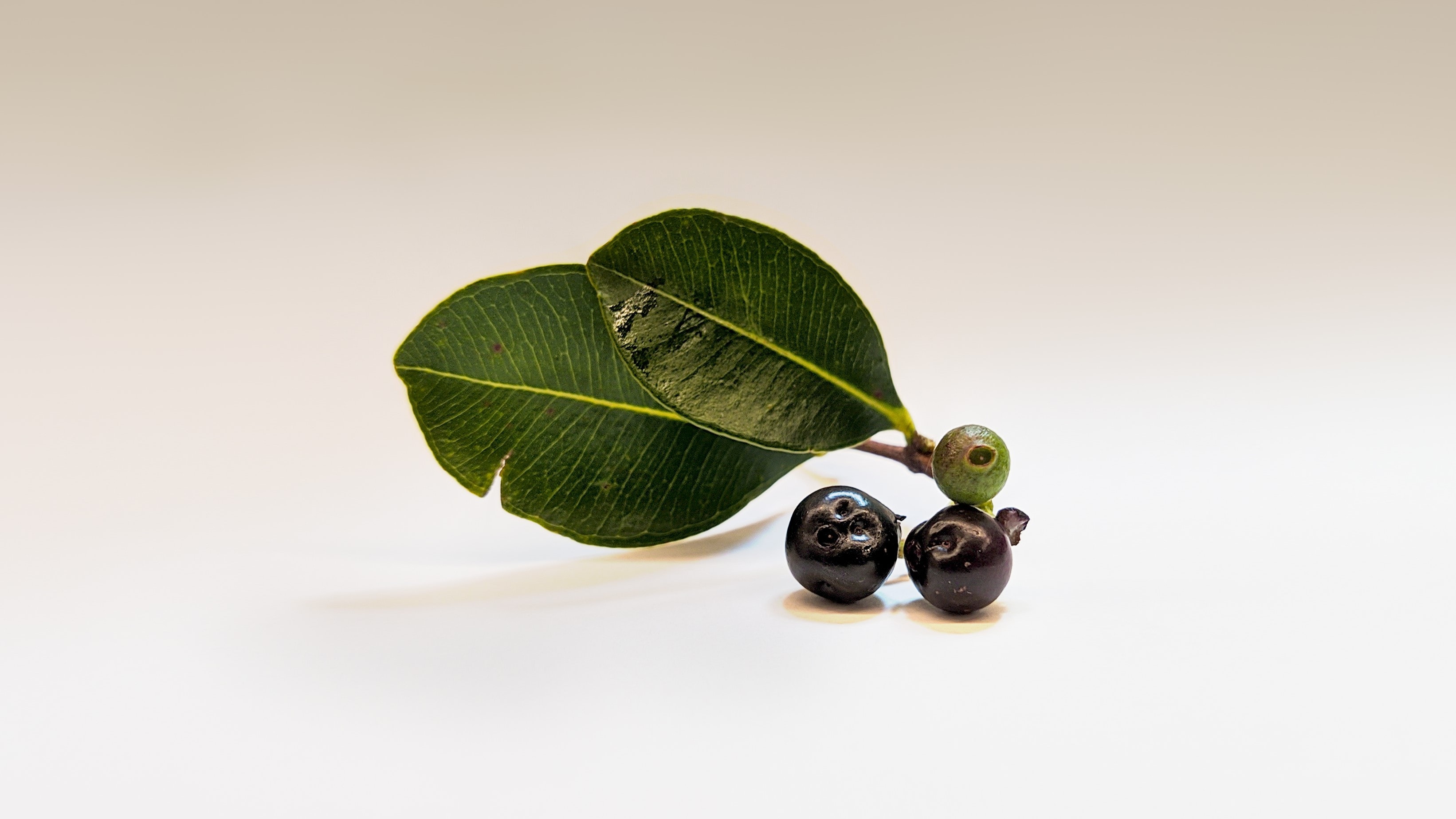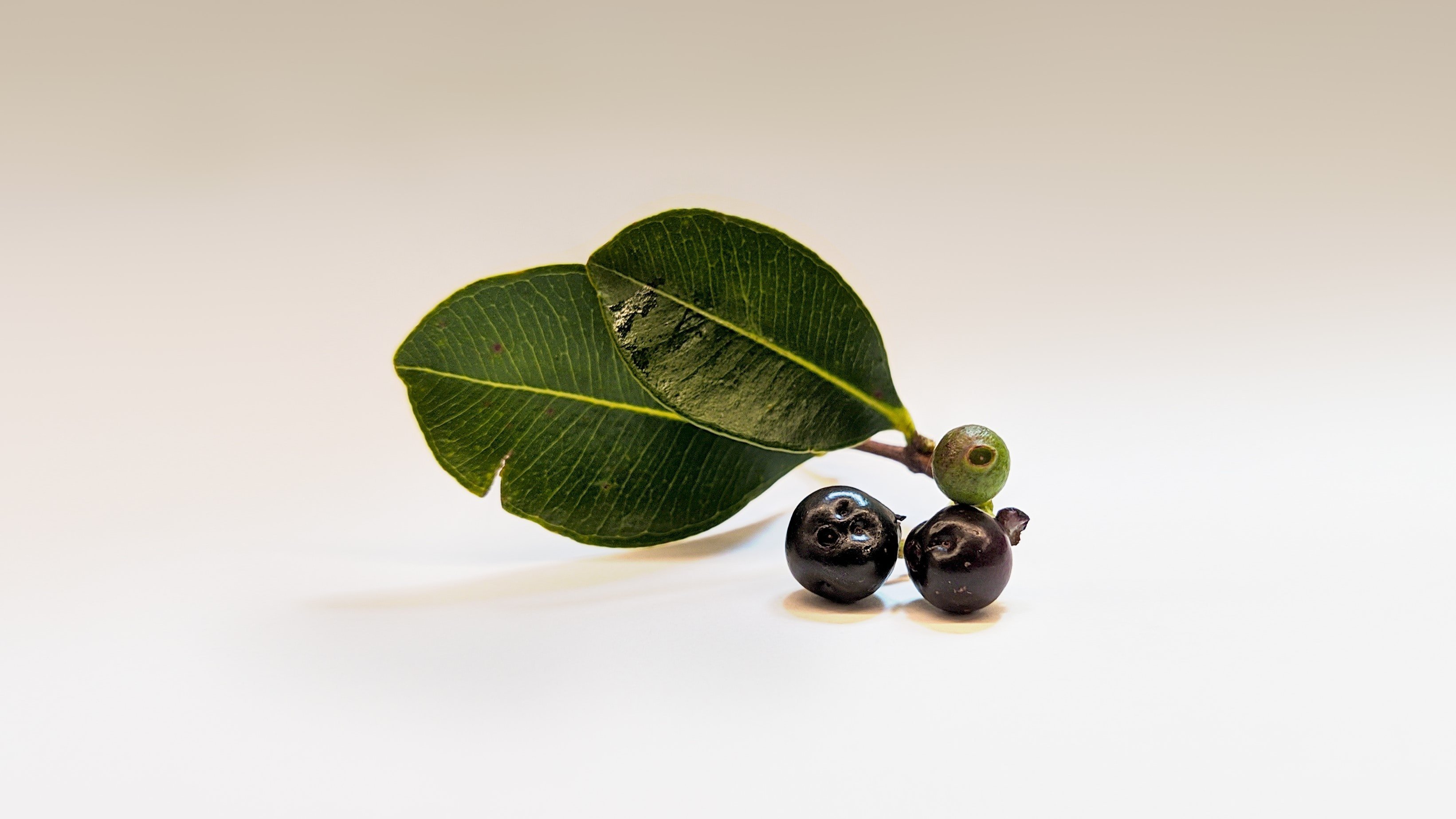Over the last decade, acai berries have emerged as the darling of the superfood universe. But are these Brazilian berries as super as they claim? Here’s what you need to know about this purple superfood, as well as four acai berry benefits.
First thing’s first: acai is pronounced ah-sigh-ee. Now that that’s out of the way… Acai berries are native to Central and South America, especially the Amazon region where they’ve been a staple in the diet of native tribes such as the Caboclo. They grow on the acai palm tree, which can reach heights up to 100 feet.
The dark purple berries are about the size of a grape. Curious what acai tastes like? It’s kind of like eating blackberry and chocolate at the same time. While they may look like a large and darker blueberry, acai is actually a drupe. A drupe is defined as a fleshy fruit with a thin skin and contains a central stone or pit (think peaches and cherries).
Acai Berries: an antioxidant-rich & nutrient-dense superfruit
If there’s one thing acai berries are known, it’s their high antioxidant content. They have an Oxygen Radical Absorbance Capacity (ORAC) score of 15,405 or 3 times the amount found in blueberries.
Acai berries are especially rich in one type of antioxidant known as anthocyanins, which gives the berries their dark purple color. (Anthocyanins aren’t just reserved for acai berries, but all purple, blue and red fruits, and vegetables.)
Research has shown this flavonoid “may play a significant role in preventing lifestyle-related diseases such as cancer, diabetes, and cardiovascular and neurological diseases.”
In addition to being rich in antioxidants, especially the all-important beauty vitamins A, C, and E, acai berries are also nutrient-dense. They’re high in fat — but don’t worry, it’s the good fat! I’m talking about omega-3s, 6s, and 9s. On the flip side, acai berries are relatively low in sugar.

4 Acai Berry Benefits
1. Acai berries are good for your skin
There’s a reason why acai berries are known as the Brazilian beauty berry! As I mentioned earlier, acai berries are loaded with antioxidants, as well as the beauty vitamins A, C and E, which are important for skin health.
Remember the anthocyanins? The flavonoid that gives these berries their purple hue? They’re particularly “potent scavengers” of free radicals. Free radicals not only destroy cells, but accelerate skin aging. Dark spots, wrinkles, fine lines are all linked to free radical damage.
Acai’s vitamin C content also contributes to your natural collagen production. Collagen is the most abundant protein in the body and it gives skin its structure, suppleness, and stretch. The older we get, the less collagen our skin produces, which explains why we’re so prone to wrinkle.
And then there’s vitamin E. This antioxidant protects against sun damage by absorbing harmful UV rays.
2. Acai berries may have anti-cancer properties
While more research is needed, there are signs that acai berries may protect against or even fight cancer.
The anthocyanins in the fruit have already been shown to reduce the risk of cancer. And in animal studies, acai pulp reduced both colon and bladder cancer.
As far as humans are concerned, a 2006 study saw some promising results when researchers dripped concentrated acai juice on leukemia cells and 86% of the cancer cells started to self-destruct.
3. Acai berries are good for your brain
Want to protect your brain from cognitive decline? Acai berries may help!
In one 2013 study published in “Neuroscience Letters,” acai berry extract was found to be protective against the build-up of beta-amyloid, which contributes to the development of Alzheimer’s disease.
The brain also stays healthy by performing a process known as autophagy, and acai berries have been shown to encourage or enhance this internal housekeeping act. Not only does this allow the formation of new nerves, it also enhances the communication between brain cells.
4. Acai berries are good for your heart
Acai is a heart-healthy food. One study showed this Brazilian berry, specifically in the form of acai smoothies, can improve cholesterol levels by lowering LDL cholesterol, otherwise known as bad cholesterol.
As this article has mentioned multiple times, the antioxidants in acai berries also play a role in protecting the heart.

How to use acai berries
As acai berries continue to rise in popularity at health and smoothie bars, you’ll be hard pressed to find them in the produce aisle. You’re more likely to find them in frozen or powdered form, which isn’t a bad thing since to make acai berries edible you have to soak them and mash them into a paste.
Nutritionally speaking, it’s not a bad thing either. Because fresh acai berries lose their nutritional value in transit, it’s actually better to consume dried (powdered) or frozen acai berries. Acai berry powder, like the one found in the Forever Beautiful mix, is naturally dried and maintains nutrition.
Obviously, the most popular (and trendy) way to eat acai is in the form of acai bowls, like this one. Açaí bowls, or smoothie bowls, are delicious! It’s basically a thicker smoothie with lots of yummy toppings. We love making our acai bowls with Forever Beautiful or Energy Bomb mix, which both contain organic acai berry powder that’s sourced directly from Brazil.
But these mixes aren’t just for acai bowls! You can also add them to smoothies, porridge, dips, hummus, and more!






